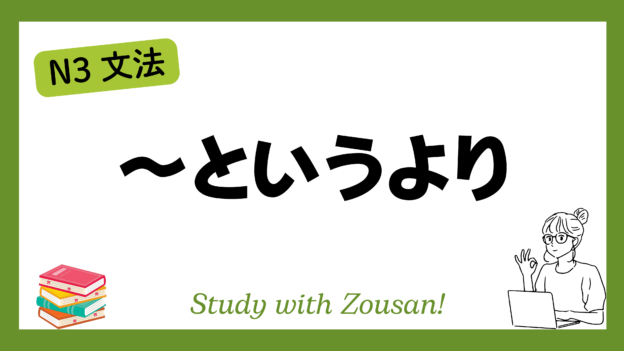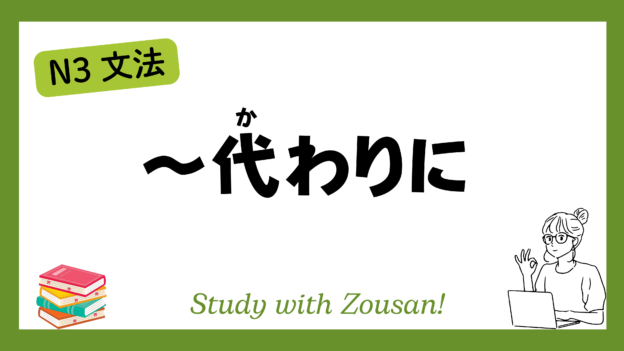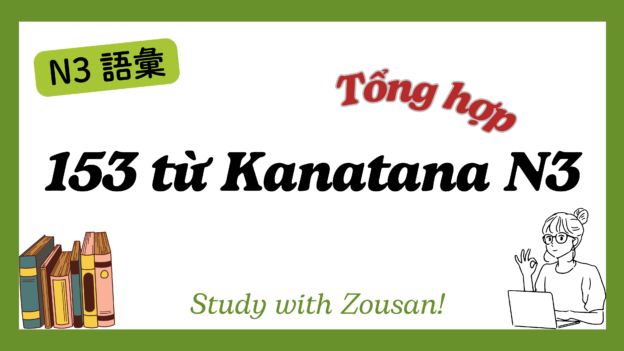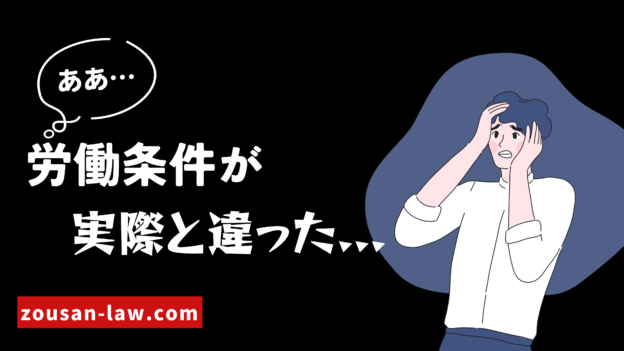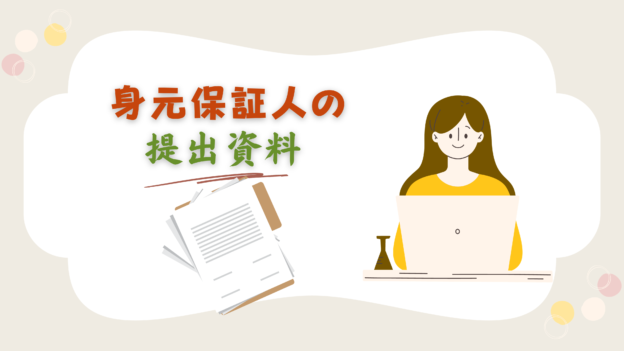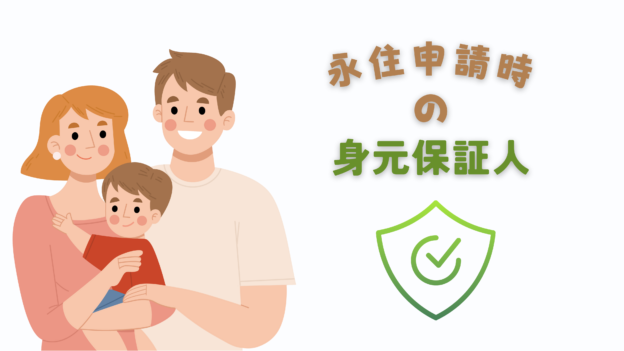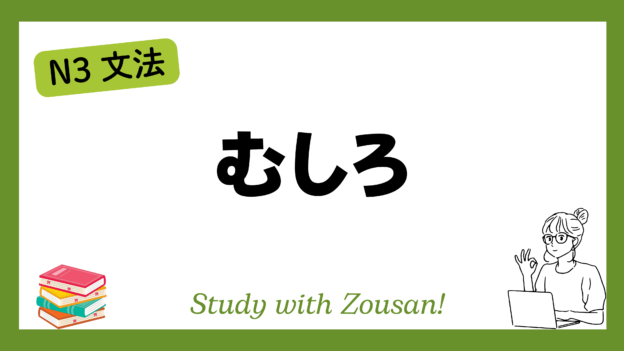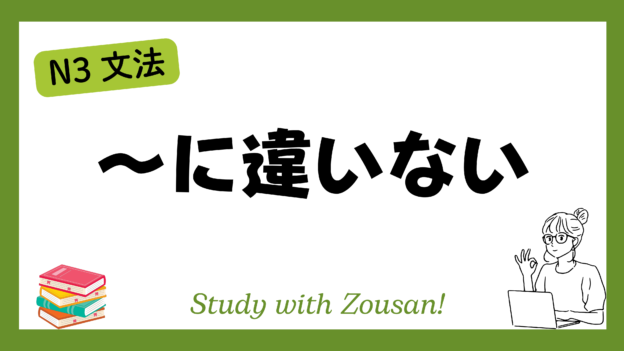1.🌟 アイドル (thần tượng)
✨ 彼女は有名なアイドルだ。
(かのじょ は ゆうめい な あいどる だ。)
Cô ấy là một thần tượng nổi tiếng. 🌟
2.🌟 アイロン (bàn ủi, bàn là)
✨ シャツにアイロンをかけた。
(しゃつ に あいろん を かけた。)
Tôi đã ủi áo sơ mi. 🌟
3.🌟 アウト (ra ngoài, thất bại)
✨ 試合でアウトになった。
(しあい で あうと に なった。)
Bị loại khỏi trận đấu. 🌟
4.🌟 アクセサリー (trang sức, phụ kiện)
✨ 新しいアクセサリーを買った。
(あたらしい あくせさりー を かった。)
Tôi đã mua một chiếc phụ kiện mới. 🌟
5.🌟 アナウンサー (phát thanh viên)
✨ 彼はテレビのアナウンサーだ。
(かれ は てれび の あなうんさー だ。)
Anh ấy là phát thanh viên truyền hình. 🌟
6.🌟 アニメ (phim hoạt hình)
✨ このアニメはとても人気がある。
(この あにめ は とても にんき が ある。)
Bộ phim hoạt hình này rất được ưa chuộng. 🌟
7.🌟 アルコール (cồn, rượu)
✨ アルコールを控えている。
(あるこーる を ひかえている。)
Tôi đang hạn chế uống rượu. 🌟
8.🌟 アルバム (album, quyển ảnh)
✨ 思い出のアルバムを見返した。
(おもいで の あるばむ を みかえした。)
Tôi đã xem lại album ảnh kỷ niệm. 🌟
9.🌟 イコール (bằng, đồng nghĩa với)
✨ 努力は成功にイコールだ。
(どりょく は せいこう に いこーる だ。)
Nỗ lực đồng nghĩa với thành công. 🌟
10.🌟 イメージ (hình ảnh, ấn tượng)
✨ 新しいイメージを作り上げた。
(あたらしい いめーじ を つくりあげた。)
Tạo dựng hình ảnh mới. 🌟
11.🌟 インク (mực)
✨ プリンターのインクが切れた。
(ぷりんたー の いんく が きれた。)
Máy in đã hết mực. 🌟
12.🌟 インタビュー (phỏng vấn)
✨ 記者が彼にインタビューした。
(きしゃ が かれ に いんたびゅー した。)
Phóng viên đã phỏng vấn anh ấy. 🌟
13.🌟 エネルギー (năng lượng)
✨ エネルギーを節約する。
(えねるぎー を せつやく する。)
Tiết kiệm năng lượng. 🌟
14.🌟 オーダー (đặt hàng, gọi món)
✨ レストランでオーダーを取った。
(れすとらん で おーだー を とった。)
Đã gọi món tại nhà hàng. 🌟
15.🌟 オーバー (quá mức, vượt quá)
✨ 体重がオーバーしている。
(たいじゅう が おーばー している。)
Cân nặng của tôi đã vượt quá mức. 🌟
16.🌟 カード (thẻ, thiệp)
✨ クレジットカードを使う。
(くれじっとかーど を つかう。)
Sử dụng thẻ tín dụng. 🌟
17.🌟 ガイド (hướng dẫn viên, chỉ dẫn)
✨ 彼はプロのガイドだ。
(かれ は ぷろ の がいど だ。)
Anh ấy là một hướng dẫn viên chuyên nghiệp. 🌟
18.🌟 カウンター (quầy, bàn đếm)
✨ ホテルのカウンターでチェックインする。
(ほてる の かうんたー で ちぇっくいん する。)
Làm thủ tục nhận phòng tại quầy lễ tân của khách sạn. 🌟
19.🌟 カタログ (danh mục, catalog)
✨ 商品カタログを見た。
(しょうひん かたろぐ を みた。)
Tôi đã xem danh mục sản phẩm. 🌟
20.🌟 カット (cắt, giảm)
✨ 髪をカットした。
(かみ を かっと した。)
Tôi đã cắt tóc. 🌟
21.🌟 カバー (bọc, che)
✨ ソファーにカバーをかけた。
(そふぁー に かばー を かけた。)
Tôi đã bọc sofa lại. 🌟
22.🌟 カラー (màu sắc, cổ áo)
✨ 鮮やかなカラーの服を着る。
(あざやかな からー の ふく を きる。)
Mặc bộ quần áo có màu sắc rực rỡ. 🌟
23.🌟 キャンセル (hủy bỏ)
✨ 予約をキャンセルした。
(よやく を きゃんせる した。)
Tôi đã hủy đặt chỗ. 🌟
24.🌟 キャンプ (cắm trại)
✨ 週末にキャンプに行く。
(しゅうまつ に きゃんぷ に いく。)
Cuối tuần này tôi sẽ đi cắm trại. 🌟
25.🌟 クーラー (máy lạnh, điều hòa)
✨ クーラーをつけた。
(くーらー を つけた。)
Tôi đã bật máy lạnh. 🌟
26.🌟 グラフ (biểu đồ)
✨ データをグラフで表す。
(でーた を ぐらふ で あらわす。)
Biểu thị dữ liệu bằng biểu đồ. 🌟
27.🌟 クリーム (kem)
✨ ケーキにクリームをのせた。
(けーき に くりーむ を のせた。)
Đã phủ kem lên bánh. 🌟
28.🌟 クリスマス (Giáng Sinh)
✨ クリスマスにプレゼントをもらった。
(くりすます に ぷれぜんと を もらった。)
Tôi đã nhận được quà vào dịp Giáng Sinh. 🌟
29.🌟 グループ (nhóm, tập thể)
✨ 彼は新しいグループに参加した。
(かれ は あたらしい ぐるーぷ に さんか した。)
Anh ấy đã tham gia vào một nhóm mới. 🌟
30.🌟 グレー (màu xám)
✨ グレーのスーツを着ている。
(ぐれー の すーつ を きている。)
Anh ấy đang mặc bộ đồ màu xám. 🌟
31.🌟 コース (khóa học, lộ trình)
✨ 英語のコースを受ける。
(えいご の こーす を うける。)
Tham gia khóa học tiếng Anh. 🌟
32.🌟 コーナー (góc, khu vực)
✨ 本屋の子供用コーナーを探す。
(ほんや の こどもよう こーなー を さがす。)
Tìm khu vực dành cho trẻ em trong nhà sách. 🌟
33.🌟 ゴール (đích, mục tiêu)
✨ 彼はゴールに到達した。
(かれ は ごーる に とうたつ した。)
Anh ấy đã đến đích. 🌟
34.🌟 コミュニケーション (giao tiếp)
✨ 良好なコミュニケーションが大切だ。
(りょうこう な こみゅにけーしょん が たいせつ だ。)
Giao tiếp tốt là rất quan trọng. 🌟
35.🌟 サイクリング (đạp xe)
✨ 週末にサイクリングに行く。
(しゅうまつ に さいくりんぐ に いく。)
Đi đạp xe vào cuối tuần. 🌟
36.🌟 サイズ (kích thước)
✨ シャツのサイズが合わない。
(しゃつ の さいず が あわない。)
Kích thước áo sơ mi không vừa. 🌟
37.🌟 サイン (chữ ký, dấu hiệu)
✨ 契約書にサインをした。
(けいやくしょ に さいん を した。)
Tôi đã ký vào hợp đồng. 🌟
38.🌟 サラリーマン (nhân viên văn phòng)
✨ 彼は典型的なサラリーマンだ。
(かれ は てんけいてき な さらりーまん だ。)
Anh ấy là một nhân viên văn phòng điển hình. 🌟
39.🌟 サンプル (mẫu, mẫu thử)
✨ 新商品のサンプルをもらった。
(しんしょうひん の さんぷる を もらった。)
Tôi đã nhận được mẫu thử của sản phẩm mới. 🌟
40.🌟 シーツ (ga trải giường)
✨ シーツを洗濯した。
(しーつ を せんたく した。)
Tôi đã giặt ga trải giường. 🌟
41.🌟 シート (ghế ngồi, tấm trải)
✨ 前のシートに座った。
(まえ の しーと に すわった。)
Tôi đã ngồi ở ghế phía trước. 🌟
42.🌟 ジーンズ (quần jeans)
✨ 新しいジーンズを買った。
(あたらしい じーんず を かった。)
Tôi đã mua một chiếc quần jeans mới. 🌟
43.🌟 シャンプー (dầu gội)
✨ 毎日シャンプーを使う。
(まいにち しゃんぷー を つかう。)
Sử dụng dầu gội hàng ngày. 🌟
44.🌟 ジョギング (chạy bộ)
✨ 朝にジョギングをする。
(あさ に じょぎんぐ を する。)
Tôi chạy bộ vào buổi sáng. 🌟
45.🌟 ショップ (cửa hàng)
✨ 新しいショップがオープンした。
(あたらしい しょっぷ が おーぷん した。)
Một cửa hàng mới đã khai trương. 🌟
46.🌟 スイッチ (công tắc)
✨ 電気のスイッチを押す。
(でんき の すいっち を おす。)
Bật công tắc đèn. 🌟
47.🌟 スカーフ (khăn quàng)
✨ 冬にはスカーフが欠かせない。
(ふゆ には すかーふ が かかせない。)
Khăn quàng là không thể thiếu vào mùa đông. 🌟
48.🌟 スキー (trượt tuyết)
✨ 冬休みにスキーに行く。
(ふゆやすみ に すきー に いく。)
Tôi sẽ đi trượt tuyết vào kỳ nghỉ đông. 🌟
49.🌟 スケート (trượt băng)
✨ スケートリンクで滑る。
(すけーと りんく で すべる。)
Trượt băng trên sân băng. 🌟
50.🌟 スケジュール (lịch trình, thời gian biểu)
✨ スケジュールを確認する。
(すけじゅーる を かくにん する。)
Xác nhận lịch trình. 🌟
51.🌟 スター (ngôi sao, thần tượng)
✨ 彼は映画のスターだ。
(かれ は えいが の すたー だ。)
Anh ấy là một ngôi sao điện ảnh. 🌟
52.🌟 スタート (khởi đầu, bắt đầu)
✨ 大会がスタートした。
(たいかい が すたーと した。)
Cuộc thi đã bắt đầu. 🌟
53.🌟 スタイル (phong cách, kiểu dáng)
✨ 彼女はスタイルが良い。
(かのじょ は すたいる が よい。)
Cô ấy có phong cách rất đẹp. 🌟
54.🌟 ストッキング (tất dài, vớ)
✨ 新しいストッキングを買った。
(あたらしい すとっきんぐ を かった。)
Tôi đã mua một đôi tất mới. 🌟
55.🌟 スピーチ (bài phát biểu)
✨ 彼は感動的なスピーチをした。
(かれ は かんどうてき な すぴーち を した。)
Anh ấy đã có một bài phát biểu đầy cảm động. 🌟
56.🌟 セール (giảm giá)
✨ セールで服を買った。
(せーる で ふく を かった。)
Tôi đã mua quần áo trong đợt giảm giá. 🌟
57.🌟 セット (bộ, gói)
✨ 食器のセットを買った。
(しょっき の せっと を かった。)
Tôi đã mua một bộ bát đĩa. 🌟
58.🌟 ゼミ・セミナー (hội thảo, khóa học)
✨ 経済学のゼミに参加した。
(けいざいがく の ぜみ に さんか した。)
Tôi đã tham gia vào khóa học kinh tế. 🌟
59.🌟 センター (trung tâm)
✨ 彼はチームのセンターだ。
(かれ は ちーむ の せんたー だ。)
Anh ấy là trung tâm của đội. 🌟
60.🌟 センチ (centimet)
✨ このテーブルは150センチの長さがある。
(この てーぶる は ひゃくごじゅっせんち の ながさ が ある。)
Chiếc bàn này dài 150 cm. 🌟
61.🌟 ソックス (vớ, tất)
✨ 白いソックスを履いている。
(しろい そっくす を はいている。)
Tôi đang mang tất màu trắng. 🌟
62.🌟 ソファー (ghế sofa)
✨ リビングに新しいソファーを置いた。
(りびんぐ に あたらしい そふぁー を おいた。)
Tôi đã đặt một chiếc sofa mới trong phòng khách. 🌟
63.🌟 ダイエット (chế độ ăn kiêng, giảm cân)
✨ ダイエットを始めた。
(だいえっと を はじめた。)
Tôi đã bắt đầu chế độ ăn kiêng. 🌟
64.🌟 ダイヤグラム (biểu đồ, sơ đồ)
✨ ダイヤグラムを使って説明する。
(だいやぐらむ を つかって せつめい する。)
Tôi sử dụng sơ đồ để giải thích. 🌟
65.🌟 タイプ (loại, kiểu)
✨ 彼は私のタイプではない。
(かれ は わたし の たいぷ では ない。)
Anh ấy không phải là kiểu người của tôi. 🌟
66.🌟 ダイヤ / ダイヤモンド (kim cương)
✨ ダイヤの指輪をもらった。
(だいや の ゆびわ を もらった。)
Tôi đã nhận được một chiếc nhẫn kim cương. 🌟
67.🌟 ダブル (kép, đôi)
✨ ダブルルームを予約した。
(だぶるるーむ を よやく した。)
Tôi đã đặt một phòng đôi. 🌟
68.🌟 ダンス (nhảy múa, khiêu vũ)
✨ 彼女はダンスが得意だ。
(かのじょ は だんす が とくい だ。)
Cô ấy rất giỏi nhảy múa. 🌟
69.🌟 チーム (đội, nhóm)
✨ チームワークが重要だ。
(ちーむわーく が じゅうよう だ。)
Tinh thần đồng đội rất quan trọng. 🌟
70.🌟 チェックアウト (trả phòng)
✨ 午前10時にチェックアウトする。
(ごぜん じゅうじ に ちぇっくあうと する。)
Trả phòng lúc 10 giờ sáng. 🌟
71.🌟 チャンス (cơ hội)
✨ チャンスを逃したくない。
(ちゃんす を のがしたく ない。)
Tôi không muốn bỏ lỡ cơ hội. 🌟
72.🌟 チョーク (phấn viết)
✨ 黒板にチョークで書く。
(こくばん に ちょーく で かく。)
Viết lên bảng bằng phấn. 🌟
73.🌟 ツアー (chuyến du lịch, tour)
✨ バスツアーに参加した。
(ばすつあー に さんか した。)
Tôi đã tham gia một chuyến du lịch bằng xe buýt. 🌟
74.🌟 データ (dữ liệu)
✨ データを分析する。
(でーた を ぶんせき する。)
Phân tích dữ liệu. 🌟
75.🌟 テーマ (chủ đề)
✨ 今回のテーマは環境問題だ。
(こんかい の てーま は かんきょうもんだい だ。)
Chủ đề lần này là các vấn đề môi trường. 🌟
76.🌟 ティッシュペーパー (giấy ăn)
✨ ティッシュペーパーを使った。
(てぃっしゅぺーぱー を つかった。)
Tôi đã sử dụng giấy ăn. 🌟
77.🌟 デジタルカメラ (máy ảnh kỹ thuật số)
✨ 新しいデジタルカメラを買った。
(あたらしい でじたるかめら を かった。)
Tôi đã mua một chiếc máy ảnh kỹ thuật số mới. 🌟
78.🌟 テニスコート (sân tennis)
✨ 友達とテニスコートで遊んだ。
(ともだち と てにすこーと で あそんだ。)
Tôi đã chơi tennis cùng bạn ở sân tennis. 🌟
79.🌟 電子レンジ (lò vi sóng)
✨ 電子レンジで温めた。
(でんしれんじ で あたためた。)
Tôi đã hâm nóng bằng lò vi sóng. 🌟
80.🌟 テント (lều)
✨ キャンプでテントを張った。
(きゃんぷ で てんと を はった。)
Tôi đã dựng lều khi đi cắm trại. 🌟
81.🌟 トイレペーパー (giấy vệ sinh)
✨ トイレペーパーを買いに行く。
(といれぺーぱー を かい に いく。)
Tôi đi mua giấy vệ sinh. 🌟
82.🌟 トップ (đỉnh, hàng đầu)
✨ 彼はトップの成績を取った。
(かれ は とっぷ の せいせき を とった。)
Anh ấy đã đạt thành tích hàng đầu. 🌟
83.🌟 ドライブ (lái xe, chuyến đi xa)
✨ 週末にドライブに行く。
(しゅうまつ に どらいぶ に いく。)
Tôi sẽ đi lái xe vào cuối tuần. 🌟
84.🌟 ドラマ (phim truyền hình)
✨ このドラマは面白い。
(この どらま は おもしろい。)
Bộ phim truyền hình này rất thú vị. 🌟
85.🌟 トランプ (bài Tây)
✨ 友達とトランプをした。
(ともだち と とらんぷ を した。)
Tôi đã chơi bài với bạn bè. 🌟
86.🌟 トンネル (đường hầm)
✨ 長いトンネルを通った。
(ながい とんねる を とおった。)
Tôi đã đi qua một đường hầm dài. 🌟
87.🌟 ナイフ (dao)
✨ ナイフで果物を切った。
(ないふ で くだもの を きった。)
Tôi đã cắt trái cây bằng dao. 🌟
88.🌟 ナンバー (số, con số)
✨ 彼の電話番号を聞いた。
(かれ の でんわ ばんごう を きいた。)
Tôi đã hỏi số điện thoại của anh ấy. 🌟
89.🌟 ネックレス (vòng cổ)
✨ 彼女にネックレスをプレゼントした。
(かのじょ に ねっくれす を ぷれぜんと した。)
Tôi đã tặng cô ấy một chiếc vòng cổ. 🌟
90.🌟 ノート (vở, ghi chú)
✨ 授業でノートを取った。
(じゅぎょう で のーと を とった。)
Tôi đã ghi chú trong buổi học. 🌟
91.🌟 ノック (gõ cửa)
✨ 部屋のドアをノックした。
(へや の どあ を のっく した。)
Tôi đã gõ cửa phòng. 🌟
92.🌟 バーゲン (hàng giảm giá)
✨ バーゲンで服を買った。
(ばーげん で ふく を かった。)
Tôi đã mua quần áo giảm giá. 🌟
93.🌟 パーセント (phần trăm)
✨ 成功率は90パーセントだ。
(せいこうりつ は きゅうじゅう ぱーせんと だ。)
Tỷ lệ thành công là 90%. 🌟
94.🌟 バイオリン (đàn violin)
✨ 彼女はバイオリンを習っている。
(かのじょ は ばいおりん を ならっている。)
Cô ấy đang học chơi violin. 🌟
95.🌟 バイバイ (tạm biệt)
✨ 友達にバイバイと言った。
(ともだち に ばいばい と いった。)
Tôi đã nói tạm biệt với bạn bè. 🌟
96.🌟 バケツ (xô, chậu)
✨ バケツに水を入れた。
(ばけつ に みず を いれた。)
Tôi đã đổ nước vào xô. 🌟
97.🌟 バス (xe buýt)
✨ バスで学校に行く。
(ばす で がっこう に いく。)
Tôi đi đến trường bằng xe buýt. 🌟
98.🌟 パターン (mẫu, kiểu)
✨ 新しいデザインのパターンを考えた。
(あたらしい でざいん の ぱたーん を かんがえた。)
Tôi đã nghĩ ra một mẫu thiết kế mới. 🌟
99.🌟 バッグ (túi xách)
✨ 新しいバッグを買った。
(あたらしい ばっぐ を かった。)
Tôi đã mua một chiếc túi xách mới. 🌟
100.🌟 パック (gói, đóng gói)
✨ ジュースのパックを買った。
(じゅーす の ぱっく を かった。)
Tôi đã mua một gói nước ép. 🌟
101.🌟 パッケージ (gói, bao bì)
✨ この商品のパッケージはとてもおしゃれだ。
(この しょうひん の ぱっけーじ は とても おしゃれ だ。)
Bao bì của sản phẩm này rất thời trang. 🌟
102.🌟 ハンサム (đẹp trai)
✨ 彼はとてもハンサムだ。
(かれ は とても はんさむ だ。)
Anh ấy rất đẹp trai. 🌟
103.🌟 パンツ (quần)
✨ 新しいパンツを買った。
(あたらしい ぱんつ を かった。)
Tôi đã mua một chiếc quần mới. 🌟
104.🌟 ハンドバッグ (túi xách tay)
✨ 母にハンドバッグをプレゼントした。
(はは に はんどばっぐ を ぷれぜんと した。)
Tôi đã tặng mẹ một chiếc túi xách tay. 🌟
105.🌟 ピクニック (dã ngoại)
✨ 週末にピクニックに行く。
(しゅうまつ に ぴくにっく に いく。)
Cuối tuần này tôi sẽ đi dã ngoại. 🌟
106.🌟 ピンク (màu hồng)
✨ 彼女はピンクが好きだ。
(かのじょ は ぴんく が すき だ。)
Cô ấy thích màu hồng. 🌟
107.🌟 ブーツ (giày ủng, bốt)
✨ 冬にはブーツを履く。
(ふゆ には ぶーつ を はく。)
Tôi mang giày bốt vào mùa đông. 🌟
108.🌟 ファッション (thời trang)
✨ 彼女はファッションに敏感だ。
(かのじょ は ふぁっしょん に びんかん だ。)
Cô ấy rất nhạy bén với thời trang. 🌟
109.🌟 フェリー (phà)
✨ フェリーで島に渡る。
(ふぇりー で しま に わたる。)
Đi đến đảo bằng phà. 🌟
110.🌟 フライパン (chảo rán)
✨ フライパンで卵を焼いた。
(ふらいぱん で たまご を やいた。)
Tôi đã chiên trứng bằng chảo rán. 🌟
111.🌟 ブラウス (áo sơ mi nữ)
✨ 白いブラウスを着ている。
(しろい ぶらうす を きている。)
Cô ấy đang mặc một chiếc áo sơ mi trắng. 🌟
112.🌟 プラスチック (nhựa, chất liệu nhựa)
✨ このボトルはプラスチックでできている。
(この ぼとる は ぷらすちっく で できている。)
Chiếc chai này được làm từ nhựa. 🌟
113.🌟 ブラシ (brush – bàn chải)
✨ 髪をブラシで整える。
(かみ を ぶらし で ととのえる。)
Chải tóc bằng bàn chải. 🌟
114.🌟 ブラジル (Brazil)
✨ 彼はブラジル出身だ。
(かれ は ぶらじる しゅっしん だ。)
Anh ấy đến từ Brazil. 🌟
115.🌟 プラス (thêm vào, cộng thêm)
✨ これにプラスしてもう一つお願いします。
(これ に ぷらす して もう ひとつ おねがいします。)
Xin hãy thêm vào một cái nữa. 🌟
116.🌟 プラン (kế hoạch)
✨ 新しいプランを立てた。
(あたらしい ぷらん を たてた。)
Tôi đã lập một kế hoạch mới. 🌟
117.🌟 プログラム (chương trình)
✨ このプログラムはとても面白い。
(この ぷろぐらむ は とても おもしろい。)
Chương trình này rất thú vị. 🌟
118.🌟 ペットボトル (chai nhựa)
✨ ペットボトルをリサイクルする。
(ぺっとぼとる を りさいくる する。)
Tái chế chai nhựa. 🌟
119.🌟 ベルト (thắt lưng)
✨ 黒いベルトを締める。
(くろい べると を しめる。)
Thắt chặt chiếc thắt lưng màu đen. 🌟
120.🌟 ボート (thuyền)
✨ ボートで川を渡る。
(ぼーと で かわ を わたる。)
Đi thuyền qua sông. 🌟
121.🌟 ボーナス (tiền thưởng)
✨ 今年のボーナスが支給された。
(ことし の ぼーなす が しきゅう された。)
Tiền thưởng năm nay đã được phát. 🌟
122.🌟 ホーム (sân ga, nhà ga)
✨ 電車のホームで待っている。
(でんしゃ の ほーむ で まっている。)
Tôi đang chờ tại sân ga. 🌟
123.🌟 ホームページ (trang web)
✨ 新しいホームページを作った。
(あたらしい ほーむぺーじ を つくった。)
Tôi đã tạo một trang web mới. 🌟
124.🌟 ポスター (áp phích)
✨ 部屋にポスターを貼った。
(へや に ぽすたー を はった。)
Tôi đã dán áp phích trong phòng. 🌟
125.🌟 ポスト (hộp thư)
✨ 手紙をポストに入れた。
(てがみ を ぽすと に いれた。)
Tôi đã bỏ thư vào hộp thư. 🌟
126.🌟 マイナス (âm, trừ, tiêu cực)
✨ 気温がマイナスになった。
(きおん が まいなす に なった。)
Nhiệt độ đã xuống dưới 0 độ. 🌟
127.🌟 マラソン (chạy marathon)
✨ 彼はマラソン大会に参加した。
(かれ は まらそん たいかい に さんか した。)
Anh ấy đã tham gia cuộc thi marathon. 🌟
128.🌟 ミーティング (cuộc họp)
✨ 午後にミーティングがある。
(ごご に みーてぃんぐ が ある。)
Chiều nay có một cuộc họp. 🌟
129.🌟 ミス (lỗi, sai sót)
✨ 小さなミスをした。
(ちいさな みす を した。)
Tôi đã mắc một lỗi nhỏ. 🌟
130.🌟 ミリ・ミリメートル (milimet)
✨ この線は2ミリの幅がある。
(この せん は にみり の はば が ある。)
Đường kẻ này có độ rộng 2 milimet. 🌟
131.🌟 メーター (đồng hồ đo, mét)
✨ 水道のメーターをチェックする。
(すいどう の めーたー を ちぇっく する。)
Kiểm tra đồng hồ đo nước. 🌟
132.🌟 メイク (trang điểm)
✨ 朝にメイクをする。
(あさ に めいく を する。)
Trang điểm vào buổi sáng. 🌟
133.🌟 メッセージ (tin nhắn, thông điệp)
✨ 友達にメッセージを送る。
(ともだち に めっせーじ を おくる。)
Gửi tin nhắn cho bạn bè. 🌟
134.🌟 メニュー (thực đơn)
✨ レストランでメニューを選ぶ。
(れすとらん で めにゅー を えらぶ。)
Chọn món từ thực đơn ở nhà hàng. 🌟
135.🌟 メンバー (thành viên)
✨ チームのメンバーと話す。
(ちーむ の めんばー と はなす。)
Nói chuyện với các thành viên trong đội. 🌟
136.🌟 ユーザー (người dùng)
✨ このアプリは多くのユーザーがいる。
(この あぷり は おおく の ゆーざー が いる。)
Ứng dụng này có rất nhiều người dùng. 🌟
137.🌟 ユーモア (hài hước)
✨ 彼はユーモアがある。
(かれ は ゆーもあ が ある。)
Anh ấy rất có khiếu hài hước. 🌟
138.🌟 ヨット (thuyền buồm)
✨ 週末にヨットを楽しむ。
(しゅうまつ に よっと を たのしむ。)
Tận hưởng cuối tuần trên thuyền buồm. 🌟
139.🌟 ラーメン (mì ramen)
✨ ラーメンを食べに行く。
(らーめん を たべ に いく。)
Đi ăn mì ramen. 🌟
140.🌟 ライター (bật lửa, người viết)
✨ 彼は有名なライターだ。
(かれ は ゆうめい な らいたー だ。)
Anh ấy là một nhà văn nổi tiếng. 🌟
141.🌟 ライト (đèn, ánh sáng)
✨ 部屋のライトをつけた。
(へや の らいと を つけた。)
Tôi đã bật đèn trong phòng. 🌟
142.🌟 ラケット (vợt)
✨ テニスのラケットを買った。
(てにす の らけっと を かった。)
Tôi đã mua một cây vợt tennis. 🌟
143.🌟 ランニング (chạy bộ)
✨ 毎朝ランニングをしている。
(まいあさ らんにんぐ を している。)
Tôi chạy bộ mỗi sáng. 🌟
144.🌟 リサイクル (tái chế)
✨ 古い服をリサイクルする。
(ふるい ふく を りさいくる する。)
Tái chế quần áo cũ. 🌟
145.🌟 リットル (lít)
✨ このボトルは2リットルの容量がある。
(この ぼとる は にりっとる の ようりょう が ある。)
Chiếc chai này có dung tích 2 lít. 🌟
146.🌟 リボン (ribbon – ruy băng)
✨ プレゼントにリボンをかけた。
(ぷれぜんと に りぼん を かけた。)
Tôi đã thắt ruy băng vào món quà. 🌟
147.🌟 レインコート (áo mưa)
✨ 雨の日にはレインコートを着る。
(あめ の ひ には れいんこーと を きる。)
Mặc áo mưa vào ngày mưa. 🌟
148.🌟 レジ (quầy thu ngân)
✨ レジでお金を払う。
(れじ で おかね を はらう。)
Thanh toán tiền tại quầy thu ngân. 🌟
149.🌟 レベル (mức độ, cấp độ)
✨ 彼の英語のレベルは高い。
(かれ の えいご の れべる は たかい。)
Trình độ tiếng Anh của anh ấy rất cao. 🌟
150.🌟 ロッカー (tủ đồ)
✨ 駅にロッカーを借りた。
(えき に ろっかー を かりた。)
Tôi đã thuê tủ đồ ở ga tàu. 🌟
151.🌟 ワイン (rượu vang)
✨ ディナーでワインを飲んだ。
(でぃなー で わいん を のんだ。)
Tôi đã uống rượu vang trong bữa tối. 🌟
152.🌟 ワクチン (vaccine)
✨ インフルエンザのワクチンを打った。
(いんふるえんざ の わくちん を うった。)
Tôi đã tiêm vaccine phòng cúm. 🌟
153.🌟 ワンピース (váy liền, đầm)
✨ 彼女は可愛いワンピースを着ている。
(かのじょ は かわいい わんぴーす を きている。)
Cô ấy đang mặc một chiếc váy liền rất dễ thương. 🌟


